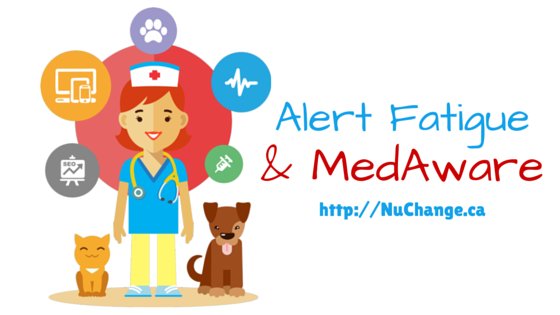Patient safety is a major concern, with almost 1.5 million people inadvertently ‘harmed’ by healthcare system in the US alone. Ehealth systems such as CPOE and CDSS could have a positive impact on reducing medication errors. However, we still do not have empirical proof for the benefits of such systems because of factors such as Alert Fatigue. Many of the Orderset and CPOE applications may even harm the patients. These systems need a structured safety evaluation by experts. But can technology come to the rescue?
MedAware: An innovative technology to reduce alert fatigue.
MedAware is a company based out of Israel with an innovative solution. MedAware uses a machine learning approach to identify prescriptions that are outliers, outside the ‘normal’ treatment spectrum. This approach has the advantage of potentially identifying a wide range of prescription errors, at the same time keeping the alert levels to the minimum. MedAware has connectors available for popular EMR systems such as Epic.
The concept of MedAware could be implemented on browser-based EMR systems like OSCAR and OpenMRS or even health information exchange clinical viewers like ClinicalConnect. A Browser plugin (Chrome extension) that sends prescriptions to a classifier program (MedAware) running on the corporate server could alert on outliers. Such a system would have the advantage of identifying errors such as Drug-Drug Interactions between medications prescribed from different institutions.
Consider the following scenario: Patient Smith visits Hospital A for diabetes management where he is receiving 500mg Metformin twice daily. He develops a minor fungal infection of his toenails for which he is recommended fluconazole, once a week for 12 weeks by Hospital B. Hospital A’s EHR does not have records of fluconazole therapy and Hospital B’s EHR does not have Metformin on record. Mr. Smith’s family physician accessing his records through the federated clinical viewer (on his browser) will see all the drugs received by Mr. Smith from various providers. Only a browser-based system can alert him about the potential interaction between metformin and fluconazole.
I have been doing some experiments with chrome extensions of late. I have no previous experience writing Chrome extensions and my journey started with this tutorial. A stub was created using Yeoman chrome-app, and I have pushed the stub to GitHub here. The goal at this stage is to have a contentscript.js that reads text from a webpage and passes it on to background.js. background.js will check if the page represents a medication page from settings and will send the content to a supporting online service.
This is just a stub at this stage. Feel free to fork and develop this. Follow these simple steps to setup a development environment.
1. Install npm, grunt, and Git
2. Git Clone master to a folder and cd to that folder. [https://github.com/E-Health/nuchange-chromeapp-alertfatigue]
3. npm install
4. grunt debug
5. Open app folder in Chrome after enabling developer mode.
6. Work on scripts.babel folder. All changes will be auto-applied.
7. If you join E-Health group, push changes to <yourname>_develop branch. OR send us a pull-request when ready.
Meet me on PRO{DENTS} Hamilton!, on our IRC Channel ##ehealth or shoot me an email.
I came to know about MedAware during an interview by my friend Dr. John Bennett with Dr. Gidi Stein, CEO of MedAware on the internet-medicine platform.
- LLMs, Agentic Patterns, and Practical Healthcare: Why Tools Matter (Part III) - January 28, 2026
- Why DHTI Chains Matter: Moving Beyond Single LLM Calls in Healthcare AI (Part II) - January 20, 2026
- Bringing Generative AI Into the EHR: Why DHTI Matter (Part I) - January 7, 2026

